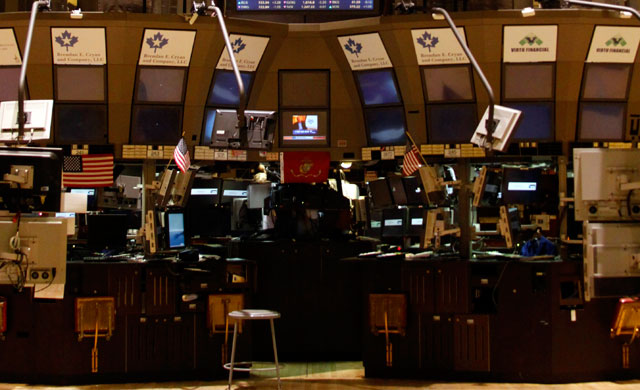Salomon’s board gathered at the office on Sunday 18th August 1991 in mournful mood as they expected the company to die very shortly. At 10am the US Treasury telephoned to say that in a few minutes it will announce that Salomon would no longer be allowed to bid in Treasury auction either for its own account or for clients. This would kill the entire corporation. The direct impact was slight because by then Salomon was making money in many areas of finance beyond trading in government debt. What really mattered was the perception of the rest of the financial world: Salomon was now regarded as persona non grata by the Treasury. If the Treasury won’t deal with Salomon why should anyone else? When the Japanese market opened late afternoon New York time Salomon’s securities will be slaughtered as lenders/investors ran for the door all at once.

There was no time to lose that Sunday morning. The board had to decide whether to opt for liquidation of assets followed by bankruptcy, thereby spreading the impact of its failure between creditors after losing everything for common and preferred stockholders.
But there was a slim hope before complete resignation to liquidation – to attempt to persuade the Treasury to rescind or amend the prohibition.
While a bankruptcy plan was being worked on Buffett phoned the Treasury and the Chairman of the Federal Reserve, Alan Greenspan.
Eventually, the Secretary of the Treasury returned Buffett’s call (from the horse races). Fortunately for Buffett, the two men knew each other. Nicholas Brady was nephew to Malcolm Chace, a member of the family which had sold Berkshire Fine Spinning to Hathaway Manufacturing. Brady’s Harvard Business School MBA thesis (1954) on Berkshire drew such a negative conclusion that he sold his shares. Buffett and Brady had encountered each other over the years and had formed a friendship.
By this time the emotional strain was beginning to tell and Buffett’s voice was cracking as he implored Brady to withdraw the ban. He added that the company was already preparing for bankruptcy, and because of its enormous size and the intertwining of Wall Street’s financial obligations Salomon’s failure would bring down many other financial institutions like a line of dominoes. This would not only be enormously damaging to Wall Street but to the whole financial world because Salomon had obligations in all the major financial centres.
Brady took some persuading – many phone conversations with Buffett and many consultations with other government and regulatory leaders – but, finally, at 2.30pm Jerome Powell, Assistant Secretary of the Treasury (now Chairman of the Federal Reserve) phoned Buffett to say an announcement was going out that Salomon was to be permitted to bid in auctions on its own account but not on customers’ accounts. This sent a message that the Treasury thought Salomon as sound, even if it had elements that had behaved badly.
The regulators had put a significant amount of weight on the character of Warren Buffett and his commitment right the ship.
The board quickly formally voted through Buffett’s appointment as Chairman and Deryck Maughan as a director and head of operations.
These two went down to a packed press conference a few minutes later, and for more than two hours answered questions. “How will you handle needing to be both here and in Omaha?” a reporter asked, “My mother has sewn my name in my underwear, so it’ll be okay”.
When asked about Salomon’s culture he said that some people might call it macho or cavalier and “I don’t think the same things would have happened in a monastery”.
It worked. Monday’s trading in Salomon’s securities was reasonably well-ordered. The months that followed were tough, but Maughan’s leadership resulted in a significant reduction in number of financial instrument exposures it had and therefore the amount it needed to borrow.
A slow rebuilding
The regulator’s fine, when it eventually came, was an easily-handled $190m plus a $100m restitution fund. Importantly, there were no criminal charges. The fine had been lowered because of the exceptional level of cooperation Buffett offered.
At first, Buffett spent several days each week in New York (being paid a grand total $1 pa), worried about what would emerge from the woodwork next to threaten the bank’s existence – yet another government agency investigation? yet another customer loss? or yet another press hammering as reporters discovered more about the wrongdoing?
He sacrificed a lot of sleep in this period, and the common stock fell to not much over $20.
He had to do something about the attitude employees had regarding the allocation of profits to shareholders – at a time when returns on capital were poor the bankers still thought they could take away three-quarter of the profits in bonuses, leaving the scraps for shareholders. Apart from his day-to-day attempts to reset the culture he also selected a public admonishment combined with a statement of how a good compensation scheme works by reproducing Salomon’s third-quarter report in two-page advertisements in the Financial Times, New York Times, Wall Street Journal and the Washington Post. The key element was his letter – note his willingness to lose staff who didn’t agree with his values (afterwards he did lose bankers by the dozen, as hundreds of thousands of dollars were lopped from their bonuses and competitors came calling):
“Most of you have read articles
………………To read more subscribe to my premium newsletter Deep Value Shares – click here http://newsletters.advfn.com/deepvalueshares/subscribe-1

 Hot Features
Hot Features













